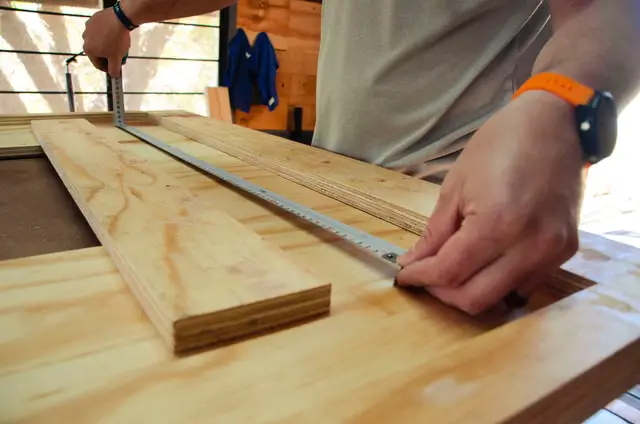In the world of IKEA and DIY stores does anyone still need a carpenter? The surprising answer is Yes!
Both individuals and businesses can benefit from the services of a qualified carpenter. This includes homeowners looking for a custom-built piece of furniture to businesses like hotels and restaurants who need someone to build and install custom cabinetry.
In this article, we will discuss the target market for carpentry and analyze the reasons why someone will hire a carpenter or request custom work from a carpentry business.
Who Is the Target Market for Carpentry?
To best understand the target market for carpentry, we need to ask ourselves – who needs the services of a carpenter? And why?
When we understand the customer’s needs and therefore their motivations, we can divide the market into groups or segments. Then we can analyze each segment independently of the other and build products and services that can cater to the needs of specific segments.
Such a needs-based segmentation approach gives us the following main segments of the target market for carpentry:
- Homeowners
- Businesses
- Construction Companies
- Do-It-Yourselfers (you don’t quite manage by themselves!)
Let’s look at each of these segments closely.
Homeowners
Homeowners are always in need of small repairs or improvements around the house.
From fixing a loose doorknob to building a custom bookshelf, there is always something that needs to be done.
Homeowners may also need carpentry services as part of a home decor project. For instance, they may want to install wainscoting or crown molding in their dining room.
For larger projects, such as a kitchen remodel, many homeowners will hire a carpenter to build custom cabinets or install new countertops.
Businesses
Many businesses require the services of a carpenter at some point.
Hotels and restaurants often need custom cabinetry built and installed.
Retail stores may need display cases or shelving built to precise specifications. They may also need someone to install new floors or do minor repair work.
Carpenters are also hired to build custom trade show booths or exhibits.
Even office buildings need conference room tables and custom desks. If a business requires any type of custom woodwork, it will need to hire a carpenter.
Construction Companies
Construction companies are also an important target market for carpentry services.
They usually hire carpenters to work on site. They can be responsible for framing buildings, creating partitions, installing doors and windows, and even building stairs. They may be needed to build walls, lay flooring, or install cabinets and countertops.
Similarly, an architectural firm working could need to hire a carpenter to build models or prototypes of their designs.
Do-It-Yourselfers
IKEA might be able to provide the materials and the instructions but that doesn’t mean everyone can put together IKEA furniture!
While most people will be able to put a chair together, when it comes to installing an entire kitchen, many people turn to professional help.
Sometimes even seasoned do-it-yourselfers need to hire a carpenter to assemble their new purchases or install them.
Other times, they may need someone to build a piece of furniture from scratch because IKEA or a similar store doesn’t have what they’re looking for.
Why Do People Hire Carpenters?
There are three types of work for which people hire carpenters. These are:
- Custom work
- Installations
- Repairs
Custom work
One of the main reasons someone will hire a carpenter is for custom work. This could be anything from building a custom bookshelf to installing new cabinets in a kitchen remodel. If you need something built to your specific specifications, a carpenter is the person to call.
Installation
Another reason someone might hire a carpenter is for installation work. This includes installing custom cabinetry, countertops, and shelving. If you have the materials but need someone to install them, a carpenter can help.
Installation can also include putting in new floors, doors, and windows. If you need help with any type of installation, a carpenter will be able to assist you.
Repairs
Sometimes things around the house need to be repaired. A loose doorknob, a wobbly table, or a hole in the drywall are all examples of things that might need to be fixed. A carpenter can fix many of these problems quickly and easily.
Carpenters are also needed for more serious repairs, such as fixing water damage or repairing structural damage to a home.
How Do Customers Select a Carpentry Service?
People consider many factors when selecting a carpenter for a job.
People consider many factors when selecting a carpenter for a job.
The top factors include:
- Experience
- Existing portfolio and reviews
- Availability
- Price
Naturally, all customers want to hire a carpenter who is experienced and has a good portfolio. This ensures that the carpenter is capable of completing the job to the customer’s satisfaction.
Customers also look for good reviews and recommendations from trusted sources.
Of course, all of this doesn’t matter if a carpenter isn’t available when the customer needs them. If a customer needs work done urgently, they will not want to wait weeks for the carpenter to be available.
Finally, price is always a consideration. Customers want to get the best value for their money and hire a carpenter who charges a fair price for their services. However, people will not always go for the cheapest option because they know they will get what they pay for. And so many customers will be willing to pay a premium for high-quality work.
Conclusion
The target market for carpentry includes homeowners, businesses, construction companies and do-it-yourselfers.
Customers usually hire carpenters when off-the-shelf products don’t work. They also hire carpenters when they need something installed or repaired, or when they need a custom piece (usually of furniture) built.
When selecting a carpenter, customers consider many factors including experience, reviews, portfolio, availability and price.

